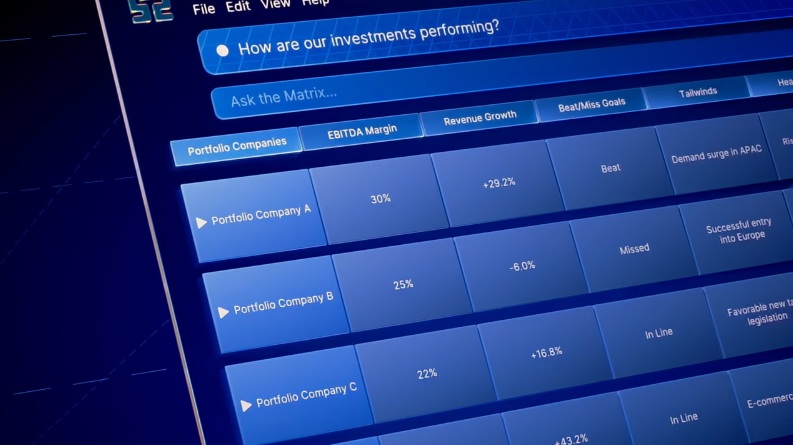 AI
AI
 AI
AI
 AI
AI
Hebbia Inc., the developer of a data search platform for enterprises, today disclosed that it has closed a $130 million investment led by Andreessen Horowitz.
Index Ventures, Alphabet Inc.’s GV venture fund and Peter Thiel participated as well. Bloomberg cited a source as saying that Hebbia is now worth about $700 million. The investment is not entirely unexpected: Reports that the company is raising first emerged in late June.
The namesake search platform allows workers to sift through large amounts of data using natural language prompts. According to the company, investment firms with $14 trillion in assets under management rely on its software to inform financial decisions. Attorneys use the software for tasks such as summarizing lengthy legal documents.
The software organizes search results in a spreadsheet-like format. If a user asks about the financial performance of the five largest players in a given market, the platform might create a separate spreadsheet column for each company. It can then break up each company’s column into fields that display data points such as revenue, net profit and earnings per share.
Hebbia can not only retrieve business information but also analyze it. A financial analyst, for example, could have the platform rank ten investment opportunities based on the potential return. Real-estate professionals can use Hebbia to generate property assessments.
Under the hood, the platform answers workers’ questions by drawing on their company’s internal documents, regulatory filings, charts and other files. Hebbia says that it uses a combination of large language models and computer vision models to generate analyses. When a user enters a query, a so-called routing mechanism built into the software automatically finds the neural network that is most suitable to process the request.
Some LLMs struggle to perform tasks that comprise multiple steps. According to Hebbia, its platform addresses the challenge by breaking down complex user requests into individual steps and assigning each one to a different neural network. The software uses LLMs from OpenAI to carry out some processing tasks.
Hebbia disclosed on occasion of today’s funding announcement that its revenue increased by a factor of 15 in the past 18 months, off an undisclosed base. The company’s workforce grew fivefold in the same time frame. The new funding will put Hebbia in a better position to maintain that growth amid mounting competition from other artificial intelligence startups.
In February, Glean Technologies Inc. raised $200 million for its rival enterprise search platform. The software can connect to a company’s internal applications and make the documents they contain searchable with natural language prompts. Moreover, Glean includes a programming assistant designed to generate coding advice for developers.
THANK YOU